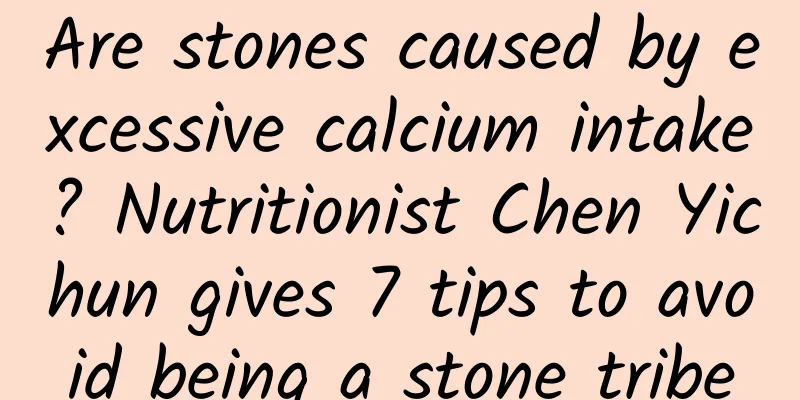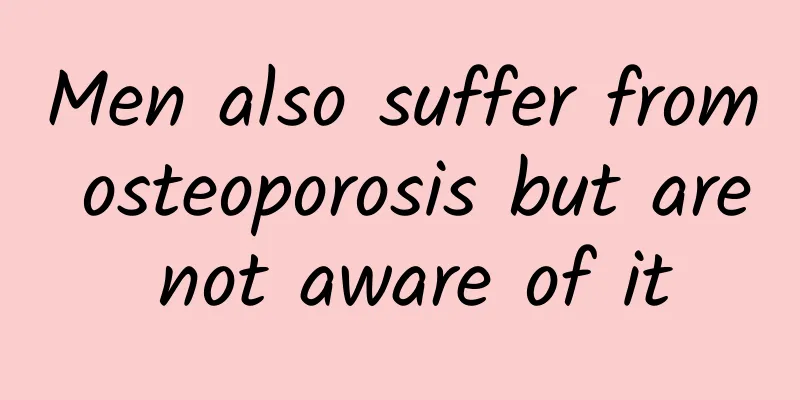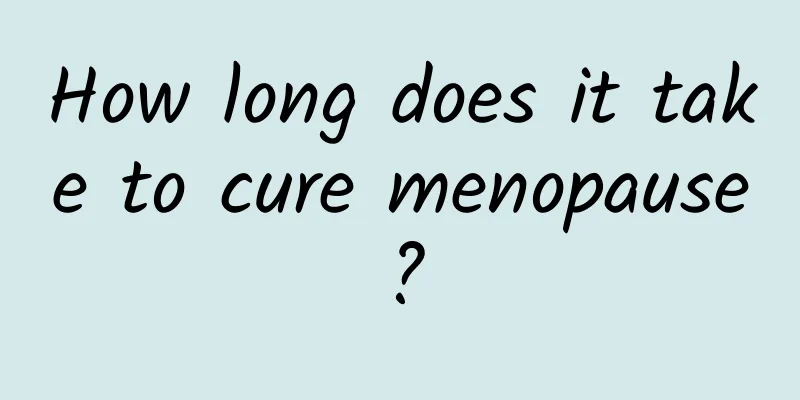Are stones caused by excessive calcium intake? Nutritionist Chen Yichun gives 7 tips to avoid being a stone tribe

|
The onset of kidney stones in the body is extremely painful! There is an online rumor that states: "Increasing calcium intake will cause kidney stones." Is this true? Nutritionist Chen Yichun said that in fact, increasing calcium intake will not cause stones. The real cause of stones is insufficient calcium intake and not drinking enough water. To prevent annoying kidney stones, people are advised to follow 7 tips and refuse to become stone-bearing people. Nutritionist Chen Yichun said that the average adult needs 1,000 mg of calcium per day, and the online rumor that "increasing calcium intake will cause stones?" is actually wrong. Bones are the largest calcium storage depot in the body. When calcium enters the body, the blood has its own balance mechanism that will store excess calcium in the bones and maintain blood calcium concentration by releasing or storing calcium. Therefore, increasing the amount of calcium will not cause stones. Will taking too much calcium cause stones?The real cause of stones is actually insufficient calcium intake. Since the body needs calcium to maintain physiological functions, when calcium intake is insufficient, the bones will release stored calcium into the blood, increasing the blood calcium concentration and maintaining the calcium concentration in the blood. However, when the blood calcium concentration rises, it easily combines with oxalic acid in the blood to form annoying stones. Generally speaking, the areas most prone to stones are the kidneys, ureters, bladder, urethra, etc. What are the causes of stones?Nutritionist Chen Yichun pointed out that the biggest reasons for the formation of stones in the body, in addition to insufficient calcium intake and a body constitution that is prone to stones, are actually insufficient water intake and excessive sweating. Normally the kidneys have the function of automatically regulating blood volume. Once dehydrated, you will feel thirsty, reminding the body to drink water. When you do not drink enough water or sweat too much, the kidneys do not form enough urine, causing the concentrations of calcium ions, uric acid, phosphoric acid, oxalic acid and other substances in the urine to be too high, which can easily form crystals and precipitate in the urine, resulting in stones. The biggest reasons for the formation of stones in the body, besides insufficient calcium intake and a body constitution that is prone to stones, are actually insufficient water intake and excessive sweating. 7 Tips to Avoid Kidney StonesNutritionist Chen Yichun reminds that if you are prone to stones, you should eat foods high in oxalic acid, such as spinach, strawberries, chocolate, strong tea, beer, etc. in moderation. The general public can follow the following tips to avoid the formation of stones. Tip 1: Drink enough water Drinking enough water will dilute your urine and prevent stones from forming. It is recommended that the average adult consume at least 2000cc of water a day. If you are prone to stone formation, you need to replenish 2500cc to 3000cc of water to allow the kidneys to have enough water to produce urine. Tip 2: Get enough calcium People who are prone to stones should take 1,000 mg of calcium daily to reduce the occurrence of stones. Dairy products, black sesame, dried fish, tofu, etc. are foods rich in calcium. Tip 3: Vitamin B6 should be sufficient Vitamin B6 can inhibit the metabolism of non-essential amino acid glycine to form oxalic acid in the body. Therefore, supplementing with an appropriate amount of vitamin B6 can reduce the formation of oxalic acid in the body and thus reduce the production of calcium oxalate. Foods containing vitamin B6 include dairy products, lean meat, beans, whole grains and root vegetables, etc. Tip 4: Dietary fiber is essential After eating greasy foods such as meat and fish, the fat ingested will easily combine with calcium to form soap calcium, which makes it impossible for calcium to combine with oxalic acid, increases the small intestine's absorption of oxalic acid, and easily forms stones in the body. Adequate dietary fiber can inhibit fat absorption, making it difficult for fat to combine with calcium, thereby preventing stones. Adequate dietary fiber can inhibit fat absorption, making it difficult for fat to combine with calcium, thereby preventing stones. Tip 5: Take the right amount of potassium and magnesium minerals The minerals potassium and magnesium are alkaline minerals that can combine with oxalic acid in the intestines, inhibiting the intestinal absorption of oxalic acid. They can also prevent the urine from becoming acidic, reduce urinary calcium excretion, and prevent stone formation. Tip 6: Don’t take too much vitamin C The Ministry of Health and Welfare recommends that adults consume 100 mg of vitamin C per day. The general public can achieve the recommended daily intake by eating a balanced diet of fruits and vegetables. Since the metabolite of vitamin C is oxalic acid, taking more than 4000 mg of vitamin C supplements every day for a long time may increase the oxalic acid content in the urine and increase the chance of developing stones. Tip 7: Avoid eating too salty food When you eat too much salt and your sodium intake increases, it will promote the excretion of calcium in the urine and increase the possibility of stones. |
Recommend
How to cure vaginal candidal infection?
Vaginal candidiasis is a common gynecological dis...
The more you eat, the thinner you get? 4321 Golden Plate Decrypted! Nutritionists teach you 5 tips to eat your way to a lean body
Is it possible to “eat more and lose weight”? Nut...
What to do to stay healthy if you have Bartholinitis
The cause of Bartholin's glanditis is imprope...
A sweet burden? Study: Fructose harms livers in young people
The "sweetness" of processed foods avai...
Can abortions five years ago be detected? Women who want to have an abortion must know these common sense
Everyone makes mistakes, after all, no one is a s...
What should women pay attention to when they have cervicitis? 4 symptoms indicate that you have cervicitis
These symptoms can directly tell you whether a wo...
Don’t make the rice dumplings too heavy during the Dragon Boat Festival! Nutritionists teach you how to make 3 healthy and wholesome multi-grain dumplings + 5 eating tips for delicious and less burdensome
In addition to dragon boat racing, the most appro...
What is cervical atrophy? Medical explanation of cervical atrophy
The appearance of cervical atrophy symptoms has a...
If you want to stay away from cervicitis, you must understand its cause
Once cervicitis affects women, it is difficult to...
Fat for Chinese New Year! 40% of people gain nearly 2kg without diet restrictions
During the Chinese New Year, many people relax an...
Changed my obese life and lost 55 kg by running
(Author: Ben Davis) To turn your life around, som...
It’s more effective to lose weight in autumn! Learn the Japanese and Korean black bean weight loss method
As the temperature turns cooler in autumn, it’s t...
Are there any sequelae after hysterectomy?
Are there any sequelae after hysterectomy? The ca...
How to treat ovarian dysfunction? Ensure adequate sleep
Ovarian function gradually declines. To achieve t...
What? ! Eating the right oil can help you manage body fat. Revealing the key to defeating body fat with the popular dietitian dietitian
For health reasons, many people avoid using oil w...









